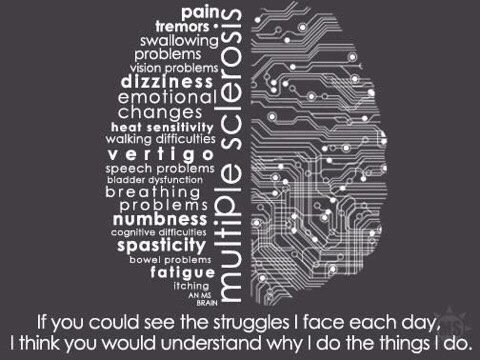Developed by Viktor Frankl, the theory is founded on the belief that human nature is motivated by the search for a life purpose
Logotherapy is the pursuit of that meaning for one's life.
Frankl's theories were heavily influenced by his personal experiences of suffering and loss in Nazi concentration camps.
Origins of Logotherapy
Victor Frankl was born in Vienna in 1905. He trained as a psychiatrist and neurologist, working from the framework of existential therapy.
During World War II, Frankl spent about three years in various Nazi concentration camps, an experience that greatly influenced his work and the development of logotherapy.
Frankl observed that those who were able to survive suffering in the concentration camps, typically found some meaning in it, such as a task that they needed to fulfill, (i.e., to testify against the Nazis).
For Frankl personally, his desire to rewrite a manuscript, that had been confiscated upon arrival at Auschwitz, was a motivating factor.
After the camps were liberated, Frankl resumed his work as a neurologist and psychiatrist.
In 1946, he published 'Man’s Search for Meaning', outlining his experiences in the concentration camps as well as the basic tenets and techniques of logotherapy.
Components of Franklian Philosophy
There are three main components that are at the heart of the Franklian philosophy:
1. Each person has a healthy core.2. The primary focus is to enlighten a person to their own internal resources and provide them with the tools to use their inner core.
3. Life offers you purpose and meaning; it does not owe you a sense of fulfillment or happiness.
Finding Meaning with Logotherapy
Logotherapy is based on the premise that humans are driven to find a sense of meaning and purpose in life. According to Frankl, life’s meaning can be discovered in three different ways:- By creating a work or accomplishing some task
- By experiencing something fully or loving somebody
- By the attitude that one adopts toward unavoidable suffering
Additionally, people can find meaning in their lives by identifying the unique roles that only they can fulfill.
For example, when a man consulted with Frankl due to severe depression following the death of his wife, Frankl asked him to consider what would have happened if he had died first and his wife had been forced to mourn his death. The man was able to recognize that his own suffering spared his wife from having that experience, which served as a curative factor and helped relieve his depression.
Logotherapy Techniques
The three main techniques of logotherapy are:1. Dereflection: Dereflection is used when a person is overly self-absorbed on an issue or attainment of a goal. By redirecting the attention, or dereflecting the attention away from the self, the person can become whole by thinking about others rather than themselves.
2. Paradoxical intention: Paradoxical intention involves asking for the thing we fear the most. For people who experience anxiety or phobias, fear can paralyze them. But by using humor and ridicule, they can wish for the thing they fear the most, thus removing the fear from their intention and relieving the anxious symptoms associated with it.
3. Socratic dialogue: Socratic dialogue is a
technique in which the logotherapist uses the own person's words as a
method of self-discovery. By listening intently to what the person says,
the therapist can point out specific patterns of words, or word
solutions to the client, and let the client see new meaning in them.
This process allows a person to realize that the answer lies within and
is just waiting to be discovered.
Conditions Treated with Logotherapy
Logotherapy is founded on a belief that many illnesses or mental health issues are actually due to existential angst. Through his work, Frankl found that people struggled with feelings of meaninglessness, a situation which he referred to as the existential vacuum.Logotherapy can be used to treat a wide range of issues that are existential in nature.
More specifically,
logotherapy has been found effective in the treatment of:
1. - substance abuse,
2. - posttraumatic stress,
3. - depression, and anxiety.
Criticism of Logotherapy
One of the primary criticisms of logotherapy comes from Rollo May, who is considered to be the founder of the existential movement in the United States.
May argued that logotherapy is authoritarian, in that it suggests that there are clear solutions to all problems and that Frankl provides people who utilize this therapy with meaning if they are unable to find their own.
Frankl was aware of May’s criticism and refuted the idea that logotherapy takes responsibility away from the individual; He maintained that logotherapy actually educates the person in therapy about his or her own responsibility.
References:
- Biography. (n.d). Victor Frankl Institut. Retrieved from http://www.viktorfrankl.org/e/chronology.html
- Bulka, R.P. (1978). Is logotherapy authoritarian? Journal of Humanistic Psychology, 18(4), 45-54.
- Delavari, H., Nasirian, M., & Baezegar bafrooei, K. (2014). Logo therapy effect on anxiety and depression in mothers of children with cancer. Iranian Journal of Pediatric Hematology Oncology, 4(2), 42-48.
- Frankl, V.E. (1959). Man’s search for meaning. Boston: Beacon Press.
- Smith, A.J. (2013). Logotherapy to treat substance abuse as a result of military-related PTSD. Journal of Military and Government Counseling, 1(1), 61-74.
Last updated: 07-02-2015









